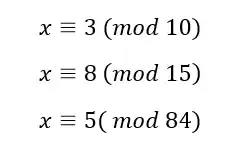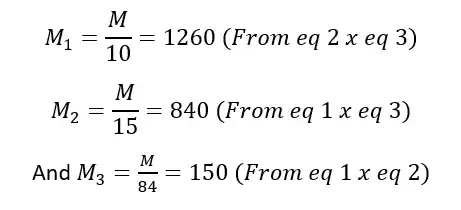I have the three equations:
Using the Chinese Remainder Theorem I have found that 10.15.84 are coprime, however they are not pairwise co-prime.
I have worked out the following:
However, none of these values have multiplicative inverses. Where do I go from here?

